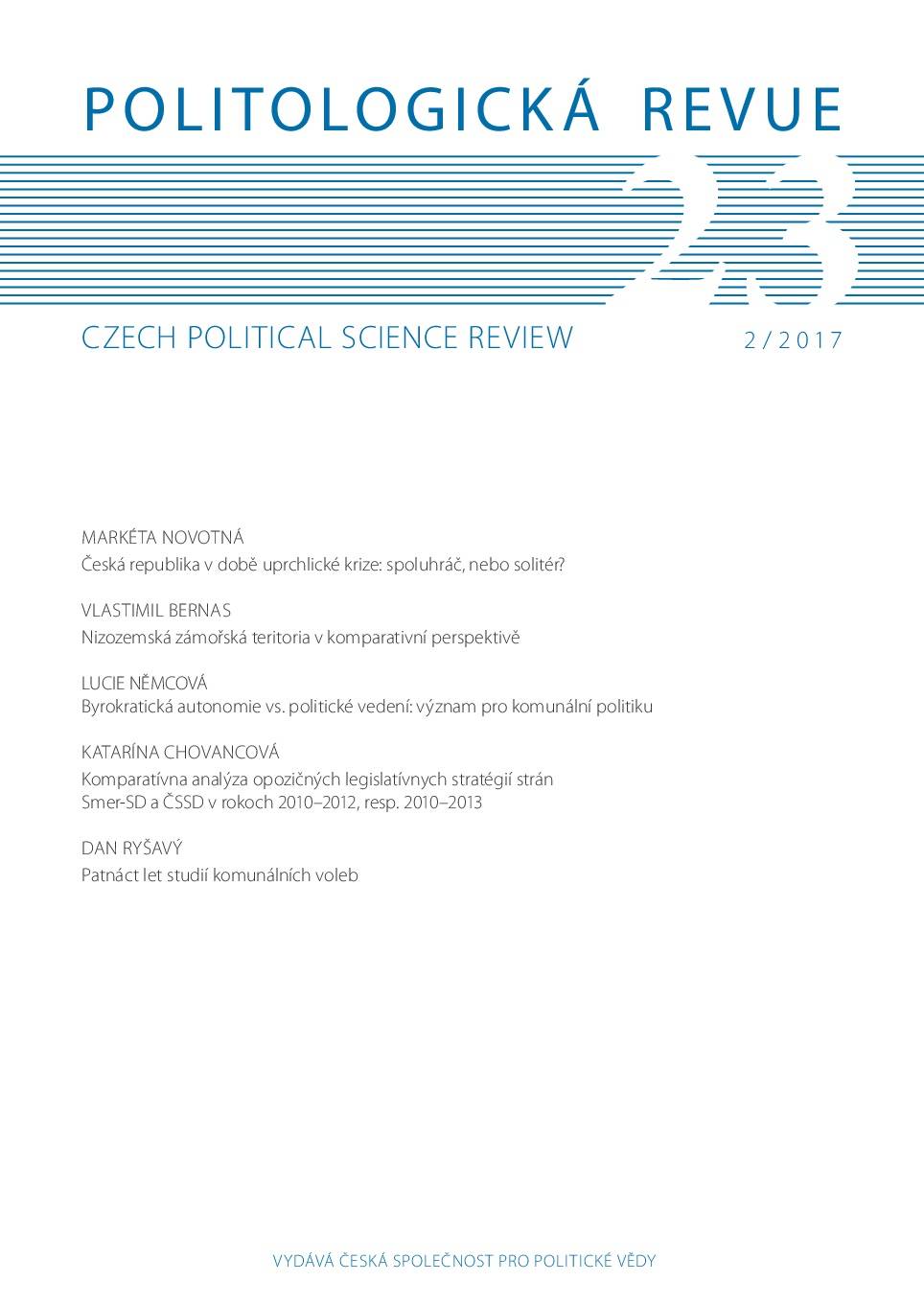Byrokratická autonomie vs. politické vedení: význam pro komunální politiku
Bureaucratic Autonomy vs. Political Leadership: Implications for Local Government
Author(s): Lucie NěmcováSubject(s): Politics / Political Sciences
Published by: Česká společnost pro politické vědy
Keywords: bureaucratic autonomy; local government; politics-bureaucracy relationship
Summary/Abstract: Can bureaucrats replace politicians in city leadership? Do they bring benefits into politics or are they a potential threat? The relationship between politics and bureaucracies is key to answering these questions. This article analyses the relationship and creates, based on its own criteria, a systematization of this relationship in areas that most influence policy-making (i.e. delegation of tasks, delegation of competences, and impact of outputs). The article then derives the basic parameters of bureaucratic autonomy and finds that among the main negative consequences of the absence of political leadership are the pluralization of bureaucrats, differing priorities and loss of accountability. Under optimal conditions, however, autonomous bureaucracies can become reliable partners in creating long-term public policy. Bureaucratic autonomy is a natural phenomenon in Scandinavia or in the United States, where politicians and bureaucrats share their powers. The international academic community has been discussing the relationship between politics and bureaucracy for almost 100 years. On the other hand, countries such as the Czech Republic still systematically underestimate this relationship in academic discussion and applied research. The systematization created in this article can be used to define cases of bureaucratic autonomy and to identify its effects on the functioning of cities and municipalities.
Journal: Politologická revue
- Issue Year: 23/2017
- Issue No: 2
- Page Range: 65-83
- Page Count: 19
- Language: Czech
- Content File-PDF

